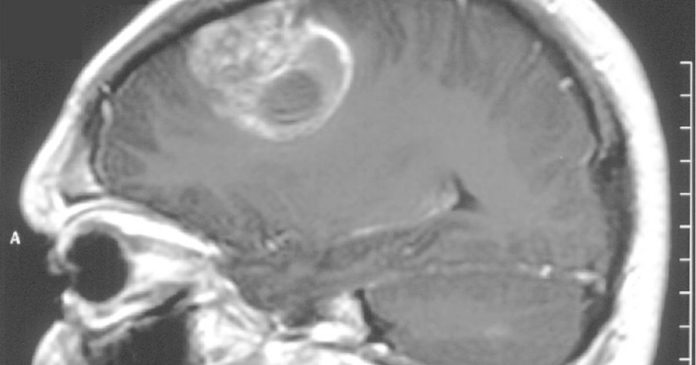Researchers at Colorado State University say cannabidiol (CBD) could prove to be useful in tackling glioblastoma, an aggressive and often deadly form of brain cancer.
According to the American Association of Neurological Surgeons, Glioblastoma multiforme (GBM) has an incidence of two to three per 100,000 adults per year, and accounts for 52 percent of all primary brain tumors.
In their study, the CSU researchers examined human and canine brain cancer cells. Why canine? It seems glioblastoma shows a number of similarities in the two species.
CBD isolate and CBD extract containing small amounts of other natural occurring cannabinoids such as cannabigerol and tetrahydrocannabinol were tested on the cells. It was determined CBD slowed cancer growth and was toxic to both canine and human glioblastoma cell lines.
As for the CBD extract, very little difference in terms of efficacy was noted compared to the isolate, which was 100% CBD.
“CBD has been zealously studied in cells for its anticancer properties over the last decade,” said Chase Gross, a student in the Doctor of Veterinary Medicine/Master of Science program at CSU. “Our study helps complete the in vitro puzzle, allowing us to move forward in studying CBD’s effects on glioblastoma in a clinical setting using live animal models. This could lead to new treatments that would help both people and dogs that have this very serious cancer.”
The researchers believe the CBD target the cell’s energy producing structures called mitochondria, causing them to dysfunction. Significant decreases in mitochondrial activity were noted in the cells treated by CBD.
It’s important to note this is only laboratory testing on cells – not on humans, or dogs for that matter; however, these are promising results. The researchers are planning to transition to animal models as a next step, which could then progress to clinical trials on dogs.
An abstract from the team’s study was published in The FASEB Journal.
This isn’t the first research carried out on the potential of cannabinoids in treating glioblastoma specifically. Back in 2017, GW Pharmaceuticals reported positive results from a clinical study of a THC and CBD formulation with a small group of patients with recurrent glioblastoma multiforme.
Last year, ASX-listed MGC Pharmaceuticals announced publication of research on the effectiveness of cannabinoids on glioblastoma.


